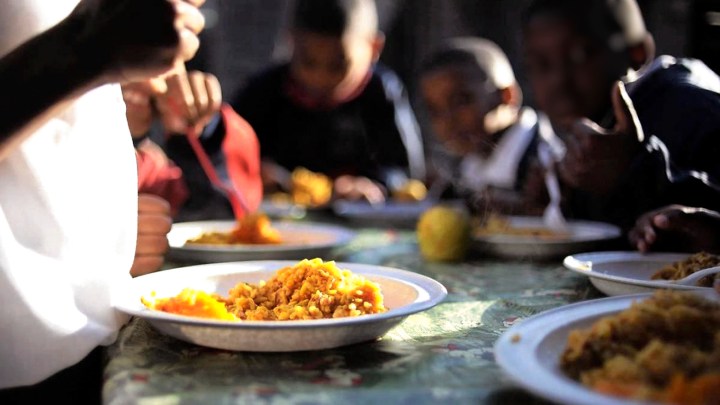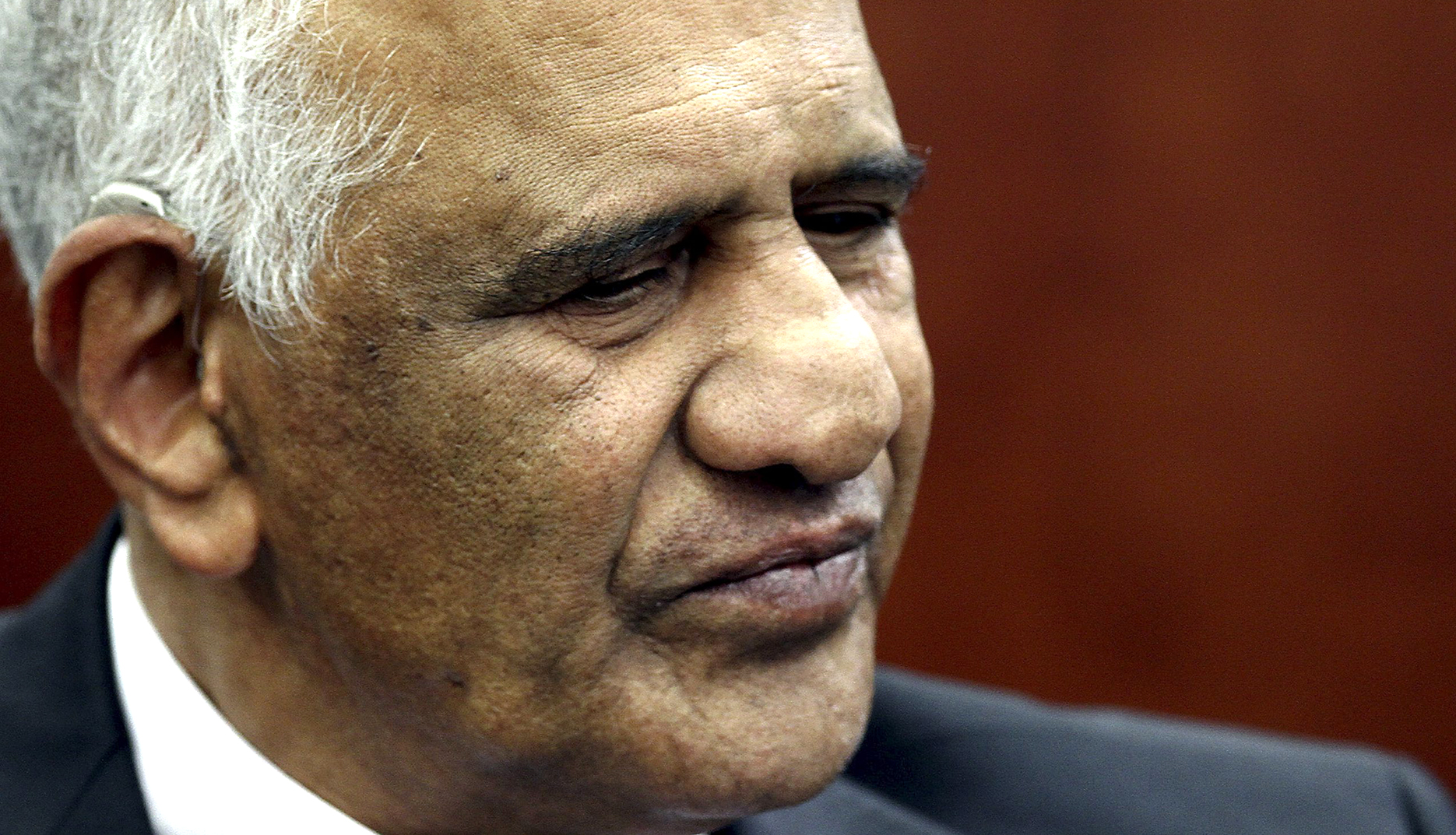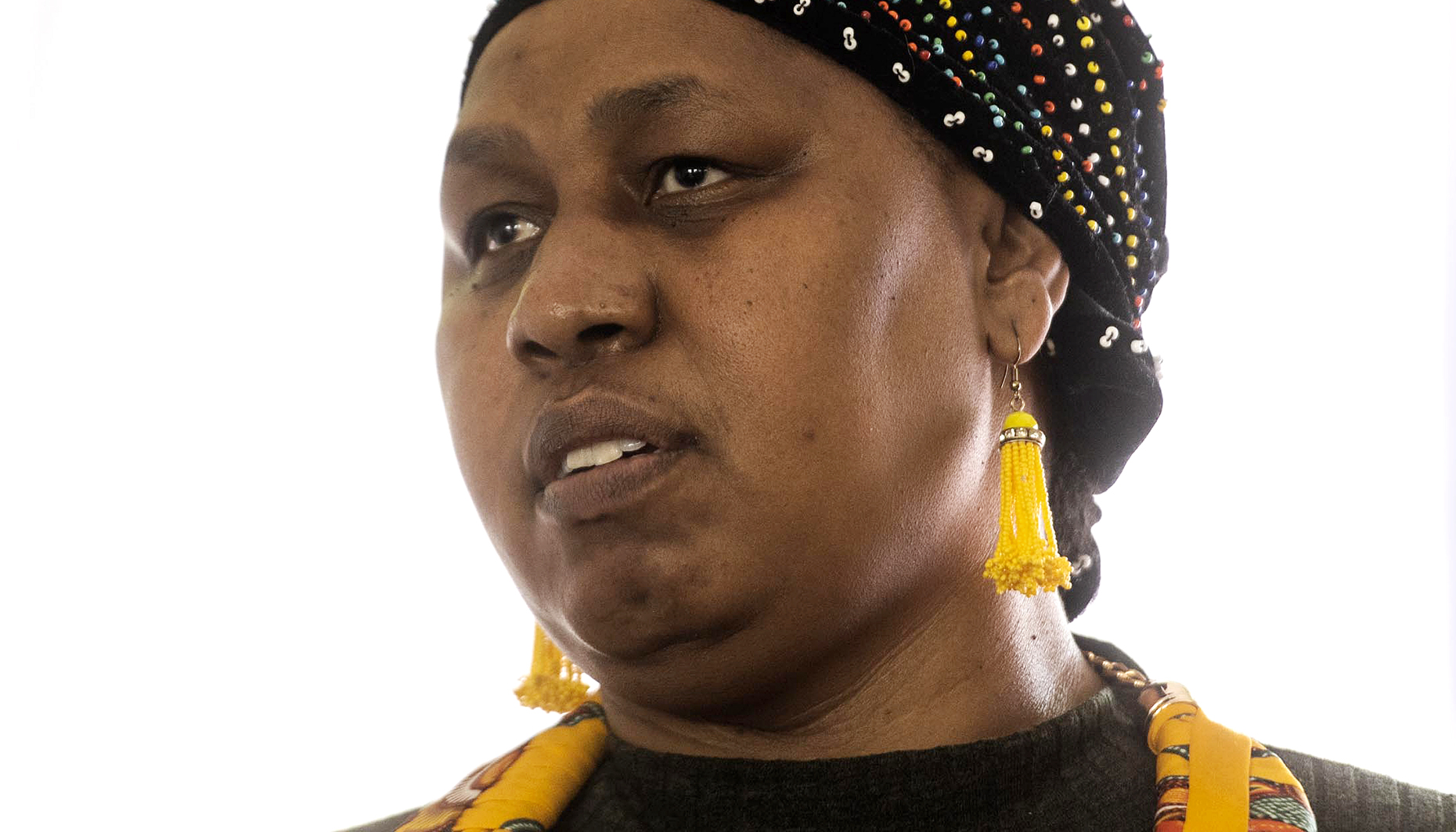TUESDAY EDITORIAL
Cruelty to children — what are we doing to our kids?

‘The children must, at last, play in the open veld, no longer tortured by the pangs of hunger or ravaged by the disease or threatened with the scourge of ignorance, molestation and abuse, and no longer required to engage in deeds whose gravity exceeds the demands of their tender years’ (Nelson Mandela, 10 December 1993).
Although few of you probably knew it, Saturday, 4 November was National Children’s Day, a day the government has declared “to highlight progress being made towards the realisation and promotion of rights of children”.
What most of you probably also don’t know is that a unique aspect of the South African Constitution is that within the Bill of Rights there are only two sets of socioeconomic rights that are not subject to “progressive realisation” within “available resources” – education and children’s rights.
Given the importance of section 28 it’s worth quoting it in full:
- Children
- Every child has the right a. to a name and a nationality from birth;
b. to family care or parental care, or to appropriate alternative care when removed from the family environment;
c. to basic nutrition, shelter, basic healthcare services and social services;
d. to be protected from maltreatment, neglect, abuse or degradation;
e. to be protected from exploitative labour practices;
f. not to be required or permitted to perform work or provide services that i. are inappropriate for a person of that child’s age; or
ii. place at risk the child’s well-being, education, physical or mental health or spiritual, moral or social development;g. not to be detained except as a measure of last resort, in which case, in addition to the rights a child enjoys under sections 12 and 35, the child may be detained only for the shortest appropriate period of time, and has the right to be
i. kept separately from detained persons over the age of 18 years; and
ii. treated in a manner, and kept in conditions, that take account of the child’s age;h. to have a legal practitioner assigned to the child by the state, and at state expense, in civil proceedings affecting the child, if substantial injustice would otherwise result; and
i. not to be used directly in armed conflict, and to be protected in times of armed conflict.2. A child’s best interests are of paramount importance in every matter concerning the child.
When I was head of SECTION27, former Constitutional Court judge Zak Yacoob never tired of explaining that “what the Constitution intends by this is that whatever party is the government, the state is always under an obligation to do ‘everything possible’ to achieve those rights, and, if it can’t, to explain why”.
Out of sight is out of mind
According to the 2022 census there are nearly 21 million children in South Africa. Although children don’t have the right to vote, there are few matters of public policy and governance that do not “concern” their lives.
However, two events that took place last week made it clear that “a child’s best interests” are not only not “of paramount importance” but for the most part they are completely absent from our countries’ thinking, planning and budgeting.

Former Constitutional Court judge Zak Yacoob. (Photo: Gallo Images / The Times / Moeletsi Mabe)
In the Medium-Term Budget Policy Statement (MTBPS), delivered on 1 November, the words “child” or “children” did not feature once. Instead, what did feature were cuts in constitutionally mandated public expenditure that will worsen the already harsh lives of millions of children and deny them “basic nutrition, shelter, basic healthcare services and social services”.
Below are some examples:
- R58-million has been cut from the maintenance component of the early childhood development conditional grant;
- Consolidated spending on health will grow at only 3.1% over the medium term, well below the projected CPI of 4.9%;
- Despite the Department of Social Development publishing a report that shows eight million children are hungry (Read: Eight million hungry children: New report about the shocking impact of poverty on young South Africans), there is no plan to increase the Child Support Grant; and
- According to Lucy Jamieson at the Children’s Institute, “budget cuts will force the closure of even more NPOs. Provinces do not have the capacity to take over so the number and quality of services for children who have experienced abuse will erode even further.”
The list goes on and on…
Constitutional experts, notably Professor Sandy Liebenberg at the University of Stellenbosch, argue (read her paper, “Austerity in the midst of a pandemic: Pursuing accountability through the socioeconomic rights doctrine of non-retrogression”) that when considering cuts to public services the minimum the government should do is a human rights impact assessment of the cuts, in this case on children. However, as the Institute for Economic Justice points out, “much of the burden of coping with the additional pressure due to spending cuts falls on women”. Since women are the primary caregivers of most children, that means kids as well.
So, clearly, they did not.
Had they done so the budget would have looked different. But for the men in Treasury, out of sight is out of mind.
Read more in Daily Maverick: Treasury has again neglected SA’s most economically vulnerable, say civil society organisations?
Read more individual civil society responses here, here and here.
Betraying Mandela
It was in this context that, a day later, the desperate state of the lives of our children was brought home to me in a national “Children’s Dialogue” hosted by the Nelson Mandela Children’s Fund in Johannesburg.
At this meeting it was not the cold, anonymous statistics that spilled out, but stories of the indignity and degradation to which millions of children are condemned. Hendrietta Bogopane-Zulu, the deputy minister of social development, spoke pleadingly about what she had observed of the lives of children, lamenting that “the family structure has collapsed”, “the village doesn’t exist anymore”, plunging children into a vortex of sexual and substance abuse from which they have little protection.
Ultimately it is the government’s responsibility to see children and to lead society to ensure their health, safety, dignity and development.
Bogopane-Zulu reported the youngest addict in a government DSD rehab centre is three years old, and complained about the easy access children have to alcohol, and the challenges of caring for children who have children. Other speakers talked about the “exponential explosion of child-on-child sexual abuse” that has occurred since the Covid-19 pandemic. As Khanysile Motsa, who runs the Berea-Hillbrow Home of Hope, a shelter for girls in Hillbrow, put it, “I’m not talking about something I read in a book. I’m on the ground. We don’t have resources.”
It’s easy to blame parents for these problems. But good parenting is becoming harder and harder for the poor – 11.9 million people are unemployed and a fifth of households lack access to adequate food – given the awful conditions in which millions of adults live.

Deputy Minister of Social Development Hendrietta Bogopane-Zulu. (Photo: Gallo Images / Alet Pretorius)
How long must we sing this song?
Realising children’s rights is not just the government’s responsibility. It’s a societal responsibility. But with the exception of a few thousand angels like Motsa we are all failing, particularly those with more power and wealth to mobilise than just their good will. The profit-plenty private food sector, for example, is still prevaricating on proposals to reduce prices on 10 essential foodstuffs which could improve the nutrition of up to 11 million children. Shame on them.
But ultimately it is the government’s responsibility to see children and to lead society to ensure their health, safety, dignity and development.
Children are the most vulnerable among us. I can only conclude that if we are not prepared to honour the Constitution when it comes to 20 million children, we should stop pretending constitutionalism and throw it out.
Read more in Daily Maverick: Let them eat more consultations: Economy, Constitution must work together to advance dignity and well-being
Alternatively, if an economic system proves itself incapable of serving its people and our supreme law, rather than throwing the people and the law out, the economic system should be discarded and replaced with something that can advance human well-being, most particularly the well-being of children. DM
For those interested in a more elaborate legal argument about the economy and the Constitution, read my article in the Constitutional Court Review: Economic Policy and the Socio-Economic Rights in the South African Constitution, 1996–2021: Why Don’t They Talk to Each Other?


















 Become an Insider
Become an Insider
Perhaps we should consider having fewer children. That seems like a fairly obvious and simple intervention and doesn’t require any action from our excuse for a government or any of the NGOS who try to fill in for them.
Child poverty is influenced by a range of factors including the erosion of social protections for mothers and children, limited access to financial resources, and the high levels of unemployment
I could never fit what I have to say about this burning global issue into 1500 chars, so I wrote a book back in 2021. Look me up – I’ll give you a copy. (Al Lovejoy – author of Acid Alex and Unwanted)
Pleased to have found your books in Kindle.
Responsible people cannot keep paying for irresponsible people’s reckless and negligent actions. Use Birth Control
That’s a very harsh statement Ben! I am 100% in favour of birth control for all women, reducing teenage pregnancies and making men more responsible for their sexual proclivities. Adults need to more responsible. However the article is talking about CHILDREN! Once born, every effort should be made to feed and protect them.
Tax payers are making every effort, their efforts are been looted, please address your complaints to the ANC.
Simple principle to life – if you can’t feed them don’t breed them
The most basic, and abused right of children, is to be born to parents who can afford to feed, nature, educate and raise each child to become a valuable member of society.
Nobody has the right, by their careless, thoughtless actions, to impose on society the burden of raise their child.
Of course circumstances can change and both parent and child become indigent, and a caring society needs to take care of both in such circumstances, according to the means of each society.
The problem here in South Africa is often absentee fathers, and here we need very considerable education in the responsibilities of parenthood, particularly by the father.
The ABSENT FATHER is probably the biggest Human Rights Violation of Apartheid and the repercussions remain with us still.
How on earth is absent fathers the fault of apartheid??? Seriously??? Talk about blame shifting – WOW
What? You mean migrant labour and hostels for mines and industry separating men from the homelands where the families must live, is not the fault of apartheid?
I am all for taking responsiility for your actions, but laying blame for all the societal ills at the feet of a woman who has no other means to support herself but to be associated with a man, is indeed harsh…
Yes all in, this is made worse by really bad economic policies.
It started however with men being separated from their families for months on end, and people being dependent on that for an income, creating unequal relationships on a massive scale.
Using what happened in the past as an excuse for what is happening in the present is pathetic
You think this phenomenon is unique to SA you’re sadly mistaken – the stats for black childred in fatherless homes in the US is even worse
I am horrified at some of these comments. There is ample universal research which indicates that when a government is unable to provide conditions which alleviate poverty , poor education, unemployment etc – then there is lack of hope, lack of meaning and the quality of peoples’ lives seriously deteriorates – a universal fact. To say – “use birth control” is shocking in displaying an abysmal lack of knowledge about socio-cultural- economic influences.
That’s a cop-out, people need to take responsibility for their own action. Why should someone who cannot afford do feed themselves churn out multiple babies? Is that act alone not negligence and child abuse, bringing a child into the world the mother knows she has absolutely NO hope of feeding? Enough with the socialist claptrap, our country is in a rapid downward spiral of poverty and desperation and bringing more and more children into a life of hopelessness, desperation and abject poverty is only accelerating the plummet downwards
The right to family is a fundamental right. Saying that poor people should not have children undermines their reproductive rights which are protected in section 27 of the Constitution.
The government is responsible to all children, whether rich or poor, to ensure they live dignified lives. Furthermore, a study from the National Library of Medicine has shown that measures that empower adolescent girls like receiving grant income or other social support can empower teenage girls to have greater control over their sexual and reproductive health.
The economic system is not the issue – racist policy and socialist inspired labour legislation coupled with incompetence and corruption on a grand scale, has destroyed our economy. Fix that, grow the economy and we will have the resources to provide for those in need whilst creating employment opportunities.
All true. The other issues are the rate of sexual violence on underage girls, and the lack of family planning resources. Incompetent social workers, police and teachers are part of the problem too. The money looted by the ANC and its cronies could have provided for millions of children. As the blue light brigade speeds along, do they look out of the window and think? Probably not.
Don’t forget the child grant – its a known and proven fact that the Child Grant actually encourages those that can’t afford it to have more children just to get the grant money